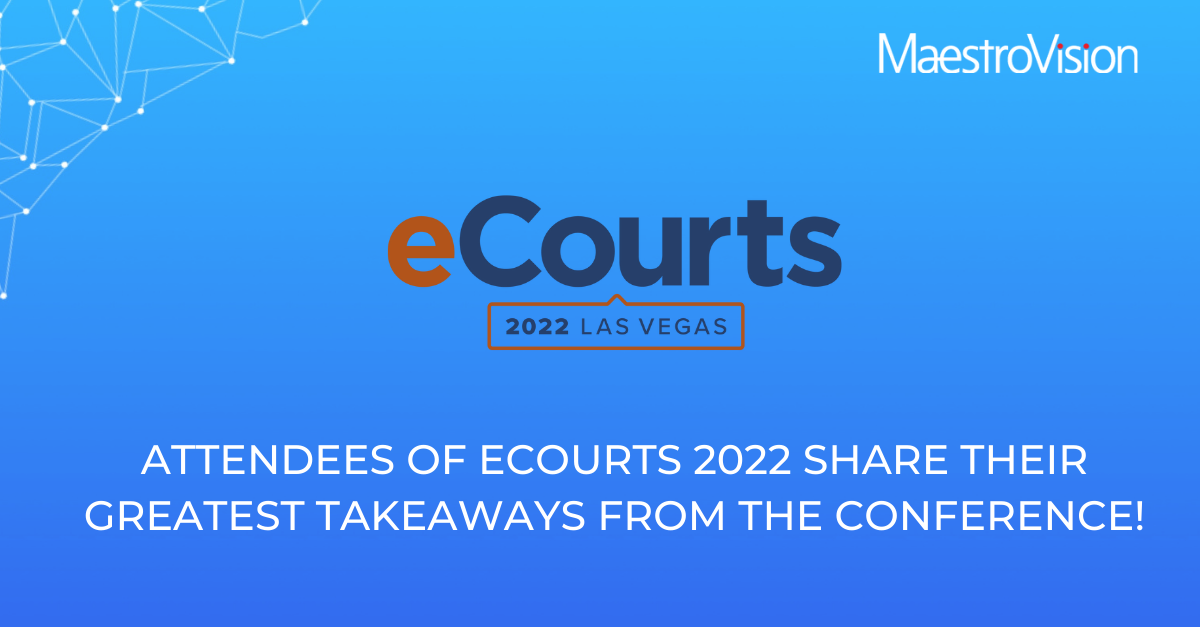The eCourts conference is designed to feature education sessions with the most in-depth and current information that address the technology needs of judges, court managers, technologists, and other court professionals. eCourts also has earned a reputation for hosting one of the most effective exhibit shows available.
This year, MaestroVision exhibited at eCourts to present our state-of-the-art court recording systems.
We wanted to get feedback from the attendees and presenters on their greatest takeaways from the conference. See what they shared with us below!



